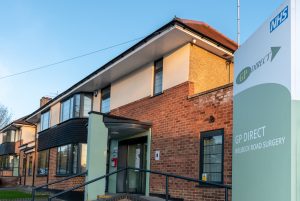When you are unwell some medications need to be stopped temporarily as they can put you at higher risk of becoming more seriously unwell if you are dehydrated. Dehydration is the loss of fluid from your body. Vomiting, diarrhoea and fever (high temperature, sweats, shaking) can make you dehydrated. Make sure to try to drink plenty of water and unsweetened drinks (100mls or half a cup) every hour to minimise dehydration and eat little and often. But if you become seriously unwell with the above symptoms and/or are unable to eat and drink then stop taking the medication listed below.
Restart your medicine once you have recovered from the illness-this would normally be after 24 to 48 hours of eating and drinking normally. When you restart your medicine, just take them as normal; do not take extra for the doses you have missed.
If you are not better after 2-3 days or require further support and advice, contact the practice to consult a clinician.
Medications to stop temporarily during illness:
- Metformin: can cause a serious side effect called lactic acidosis which is more likely if you are dehydrated.
- GLP-1 analogues: can causeserious side effects if you are dehydrated. Medicine names ending with ‘tide’ such as: exenatide, dulaglutide, liraglutide, lixisenatide and semaglutide
- SGLT2 inhibitors: can cause a serious side effect called ketoacidosis if you are dehydrated. Medicine names ending with ‘flozin’ such as: canagliflozin, dapagliflozin, empagliflozin and ertugliflozin
Other non-diabetic medication to stop temporarily during illness as they can stop your kidneys working properly and make dehydration worse:
- ACE inhibitors: medicine names ending in ‘pril’ such as: lisinopril, perindopril, ramipril
- ARBs: medicine names ending in ‘sartan’ such as: losartan, candesartan, valsartan
- NSAIDs: anti-inflammatory pain killers such as ibuprofen, diclofenac, naproxen
- Diuretics: sometimes called ‘water pills’ such as: furosemide, spironolactone, bendroflumethiazide, indapamide.
If you are diabetic and usually monitor your sugars at home, increase the number of times you check your blood glucose levels and check for ketones in your urine. If you are using daily insulin or a Sulphonyuria you may need to increase or decrease the amount taken to maintain appropriate glucose control. Sulfonylureas can cause low blood glucose (hypos) if you are unable to eat or drink, so temporally reduce, or stop them while this is the case. If you are eating and drinking normally and blood sugars are high, continue to take Sulfonylureas. Examples are medicine names ending with ‘ide’such as gliclazide, glibencamide, glipizide.
Useful further information on sick day guidance and what to do with medication:
https://www.diabetes.org.uk/guide-to-diabetes/life-with-diabetes/illness
https://ihub.scot/media/1401/20180424-web-medicine-sick-day-rules-patient-leaflet-web-v20.pdf













